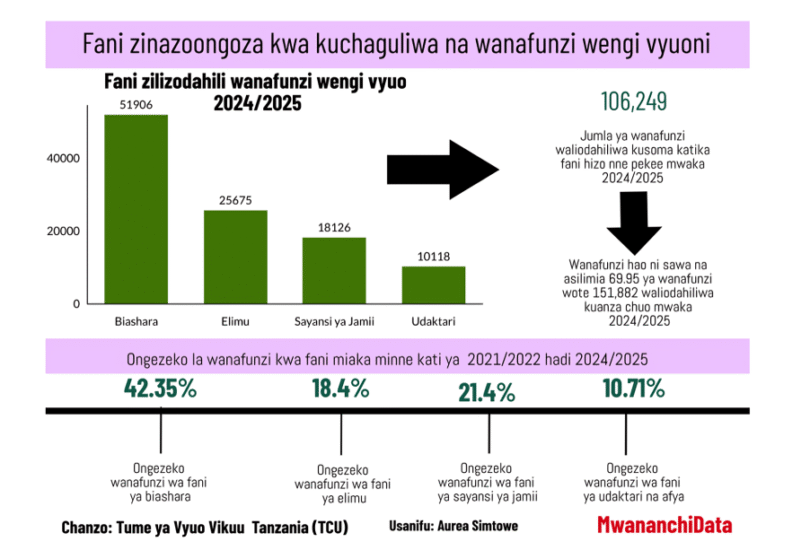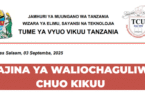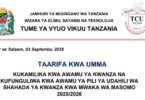As the university admission window for the 2025/2026 academic year officially opens, a clear trend is emerging. For four consecutive years, a handful of degree programs have consistently attracted the majority of applicants. But why these specific fields? And what does it say about the job market in Tanzania?
According to new data from the Tanzania Commission for Universities (TCU), nearly 70% of all students admitted in the 2024/2025 academic year chose to study in just four major fields: Business, Education, Social Sciences, and Health & Medical Sciences. The dominance of these courses may signal more than just popularity—they could reflect where opportunities for employment and self-employment are thriving.
Top 4 Most Popular University Courses (2021–2025)
Between the academic years 2021/22 and 2024/25, the same four fields consistently led in student admissions. Below is a breakdown of their popularity based on the latest data:
| Field of Study | Number of Students (2024/25) | 4-Year Growth (%) |
|---|---|---|
| Business | 51,906 | 42.35% |
| Education | 25,675 | 18.14% |
| Social Sciences | 18,126 | 21.4% |
| Medical & Health Fields | 10,542 | 10.71% |
Out of 151,882 total admissions in 2024/2025, a staggering 106,249 students enrolled in these four disciplines alone.
Why Are These Courses So Popular?
Experts and stakeholders point to three key reasons why these programs dominate:
- Access to Student Loans
Benjamin Nkonya, CEO of the Education Innovation Tanzania (EIT), explains that these courses tend to attract more students simply because they are more likely to qualify for student loans. - Employment Potential
Health and education graduates often have a clearer path to government or private-sector employment. Business students, on the other hand, are viewed as having better chances to start their own ventures. - Academic Background
Education consultant Ochola Wayoga notes that most students at lower levels focus on arts subjects, which align naturally with social sciences, business, and education degrees.
A Dip in Education Enrollments
Interestingly, while education remains a top choice, enrollment declined by 16.42% from 2023/2024 to 2024/2025. Why? Wayoga believes the job market is a factor:
“Many qualified teachers are unemployed, which discourages new students from entering the field,” he says.
Still, he points out that this drop may open up job opportunities for recent graduates due to reduced competition.
The Challenge of Graduate Unemployment
While many students are optimistic during admission, the reality after graduation can be sobering. Nkonya highlights how some graduates turn their student loans into startup capital, not out of choice, but due to lack of jobs.
“We need a better loan allocation system,” Nkonya argues. “Instead of only looking at exam results, let’s also assess which professions are in high demand and fund those.”
He suggests that students in less market-relevant programs should finance their education independently—ensuring Tanzania produces experts in sectors that truly need them.
Important Admission Guidelines from TCU
As the first phase of the admission window opens for 26 days, TCU urges students to make informed choices.
Prof. Charles Kihampa, Executive Secretary of TCU, advised:
“Before applying, carefully review university program guides. Don’t rely on hearsay. Ensure the course you want is actually offered by your chosen institution.” He also warned that some programs may have been changed or discontinued, so students must verify details through official channels.
Final Takeaway
The data reveals more than just academic trends—it highlights student priorities, loan policies, and real-world job prospects. If you’re applying this year, take time to evaluate your career goals, course demand, and future opportunities. For ongoing updates and education news in Tanzania, visit Elimutimes.com.






